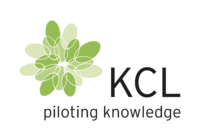Have you ever thought about how the packaging materials we use every day impact our planet? It’s a big deal, and that’s where recyclability testing comes into play. This process is like a detective’s work, figuring out how well a material can be recycled. By doing this, we can make sure our packaging does less harm to the environment and supports a circular economy. It’s not just about cutting down waste; it’s about conserving resources and creating packaging solutions that are kind to our planet. Exciting, right?
Why should you care about recyclability testing?
Recyclability testing is all about checking if a packaging material can be recycled effectively. Imagine this: it’s like giving materials a second life by seeing if they can be collected, sorted, and turned into something new. Why does this matter to you? Because it helps us pick materials that can go back into the production cycle, cutting down on the need for new resources and reducing waste. It’s a win-win!
For manufacturers, understanding recyclability is key to making sustainable products. It gives them a peek into how their packaging choices affect the environment and helps them design materials that are easier to recycle. This means eco-friendly packaging that meets what you, the consumer, expect, and what the rules require. Sounds like a good deal, doesn’t it?
Recyclability testing is crucial because it shapes the life cycle of packaging materials. By ensuring materials can be recycled efficiently, we can cut down on landfill waste, lower carbon emissions, and use resources more sustainably. It’s a vital step towards a greener packaging industry.
How does recyclability testing boost sustainability?
Think about this: recyclability testing is a game-changer for sustainability. It ensures that packaging materials can be reused and repurposed, closing the loop of the circular economy. Instead of tossing materials away, we keep them in the production cycle. By pinpointing materials that can be recycled, we reduce the need for new raw materials, conserving our planet’s resources.
Plus, recyclability testing helps shrink the environmental footprint of packaging. By promoting materials that are easy to recycle, we cut down on energy use and greenhouse gas emissions from making new materials. This means a more sustainable and eco-friendly packaging industry. Imagine the impact!
Companies can also boost their green credentials through recyclability testing. By showing they use recyclable materials, they meet the growing demand for eco-friendly products and comply with tough environmental rules. This not only helps the planet but also gives them a competitive edge. Why not consider this?
What hurdles does recyclability testing face?
But that’s not all. Recyclability testing isn’t without its challenges. One big issue is the complexity of packaging materials. Many products are made from mixed materials that are tough to separate and recycle. This makes it tricky to assess their recyclability accurately and develop effective recycling processes.
Another hurdle is the difference in recycling infrastructure across regions. The success of recyclability testing depends on having facilities that can process the materials. In places with limited recycling options, even recyclable materials might end up in landfills. Frustrating, isn’t it?
There’s also a need for standardized testing methods to ensure consistency and reliability in recyclability assessments. Without uniform standards, comparing results and making informed decisions about packaging sustainability can be tough. Overcoming these challenges is key to improving recyclability testing and advancing sustainable packaging solutions.
How can KCL help improve recyclability?
At KCL, we’re all about supporting sustainable packaging through our recyclability testing services. Our unique piloting platform and lab services let us dive deep into assessing packaging materials, helping companies boost their recyclability and sustainability credentials.
We offer a variety of testing methods, like the CEPI recyclability test, PTS-RH 021, TAPPI UM 213, and Michelman repulpability. These tests give valuable insights into material recyclability, helping companies make smart packaging choices. By identifying materials that can be recycled, we help our clients cut waste and promote a circular economy. Why not give it a try?
Besides recyclability testing, we also offer biodegradability testing, including home composting assessments. This ensures materials can break down without harming the environment, further boosting their sustainability. Through our expertise and innovative solutions, we’re dedicated to helping companies create eco-friendly packaging for a sustainable future.
Why does consumer awareness matter?
Consumer awareness is a big driver for sustainable packaging. As you become more informed about the environmental impact of packaging, you’re more likely to choose products that match your values. This shift encourages companies to prioritize recyclability and sustainability in their packaging choices.
Educating consumers about recyclability testing and sustainable packaging can push this trend further. By understanding the benefits of recyclable materials, you’re more likely to support brands committed to environmental responsibility. This, in turn, pushes companies to invest in recyclability testing and develop eco-friendly packaging solutions.
Ultimately, consumer awareness is key to promoting sustainable packaging practices. By fostering a greater understanding of the environmental impact of packaging materials, we can encourage more responsible consumption and support the transition to a circular economy. Through collaboration and education, we can work towards a more sustainable future for all. Imagine the possibilities!
